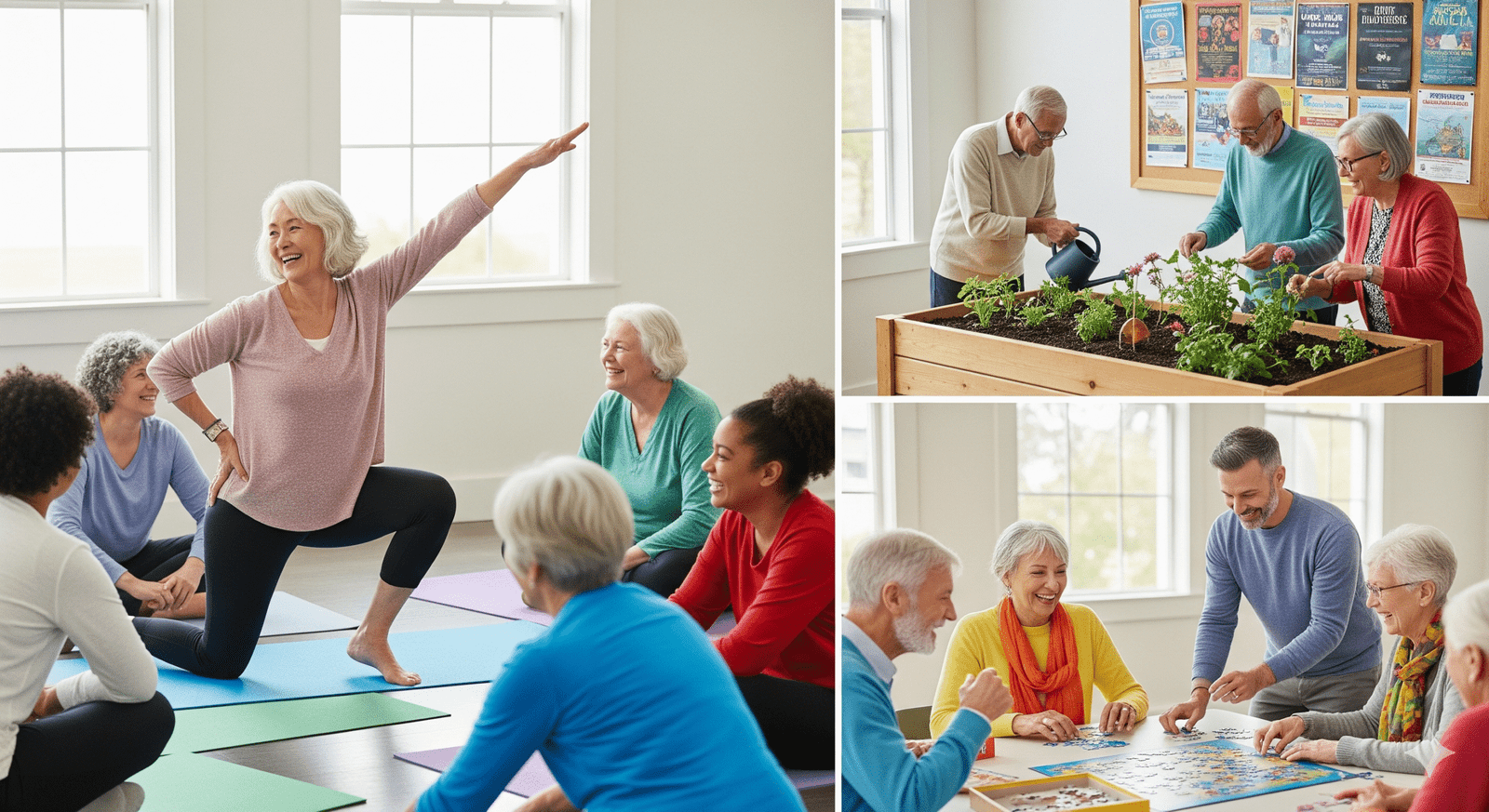Social isolation is more than loneliness—it’s a growing public health concern, especially among older adults. Research shows that disconnected seniors face significantly higher risks of early mortality, depression, cognitive decline, and elevated healthcare costs. But communities across the U.S. and beyond are creating vibrant, supportive systems to help seniors stay connected. This guide walks you through impactful community-based services and how they foster wellbeing through companionship, purpose, and belonging.
The Stakes: Why Social Isolation Can Be Dangerous for Seniors
- Roughly one-third of adults aged 45+ report feelings of loneliness—elevating their risk for health decline and mortality.ACL Administration for Community Living+6Nautilus+6Home | Dupage Senior Citizens Council+6National Council on Aging+2AARP+2Senior Medicare Patrol
- Social isolation increases mortality risk by 29%, comparable to smoking or obesity.US Aging
Key Community Services That Make a Difference
1. Senior Centers & Congregate Meals
- Local senior centers offer social activities like games, arts, group outings, and computer support—creating safe, vibrant spaces to connect.AARP+3Wikipedia+3Woman & Home+3
- Congregate meal programs offer both nourishment and companionship—especially helpful for those who live alone.Wikipedia
2. Home-Visit & Friendly Check-In Programs
- Programs like Meals on Wheels deliver meals and human connection, offering door-to-door visits and check-ins.Meals on Wheels America
- Hospitals and nonprofits offer volunteer-led programs that pair isolated seniors with compassionate visitors for companionship.Wikipedia+15American Hospital Association+15The Guardian+15
3. Volunteering & Intergenerational Initiatives
- Volunteering is a two-way gift—for example, youth outreach programs connect generations and benefit both parties emotionally and socially.Midland Daily News
- Intergenerational storytelling clubs, like NYC’s Life Story Club, unite elders through shared memories and narratives.New York Post
4. Phone & Virtual Programs
- Telephone-based groups such as Senior Center Without Walls allow homebound seniors to join classes and social chats without leaving home.Connect2Affect+15AARP+15Heisinger Bluffs+15
- Virtual reality platforms like RemoteChess foster social connection through culturally familiar games for those with mobility constraints.arXiv
5. Adult Day Services
- Adult day programs give seniors purposeful social engagement—with exercises, games, and companionship—while providing respite to caregivers.AP News
6. Aging-in-Place Village Models
- Elder Villages are neighborhood-based networks that support aging in place—offering rides, home help, social outings, referrals, and companionship.Wikipedia
7. Interventions & Programs With Proven Impact
- Tromboling social isolation through community engagement—including art classes, technology training, and peer counseling—yields improved well-being.Sarah Ralston Foundation+2PMC+2
- AmeriCorps Seniors programs create community ties through advocacy and elder outreach.AmeriCorps
- Senior Peer Counseling offers trained senior volunteers to support others through emotional challenges and life transitions.Wikipedia
Real-World Inspiration
- Jiwhala Club 60+ in India hosts birthday celebrations, shared meals, and music nights, fostering joy and emotional connection among isolated seniors.The Times of India
- The Life Story Club in NYC helps elders combat loneliness through storytelling, connecting them across cultural and social backgrounds.The Times of India+15AP News+15New York Post+15
Why These Programs Work (Quick Summary)
- Social interaction improves health: Reduced depression, dementia risk, and even healthcare spending.Wikipedia
- Accessible formats: Whether in-person, virtual, or phone-based—there’s an option for every elder’s needs.
- Creates true community bonds: Shared activities—like art, stories, or volunteering—deeply reduce isolation.
- Dual benefits: Programs like Senior Peer Counseling offer healing and purpose, both for receivers and volunteers.Wikipedia+1
FAQ: Helping Seniors Stay Connected
Q1: What community programs help isolated seniors?
Options include senior centers, friendly-visitor services, shared meals, intergenerational initiatives, virtual groups, adult day services, and “aging-in-place” village models.
Q2: How do phone-based services help?
They provide safe inclusion through social interaction and class offerings—crucial for homebound or immobile seniors.
Q3: Can volunteering help reduce isolation too?
Absolutely—whether helping others or receiving, volunteer connections give seniors both companionship and purpose.Midland Daily News
Q4: What evidence supports these programs?
Peer-reviewed studies link social programs to lower loneliness, better physical health, and delayed institutionalization.PMCUS Aging
Social isolation in older adults poses serious risks—but community services offer powerful, compassionate solutions. From senior centers to virtual clubs, companionship programs, and intergenerational bonds—every connection matters. If you’re a caregiver, family member, or service provider, begin exploring local Area Agencies on Aging to map community resources—because no one should grow old alone.

